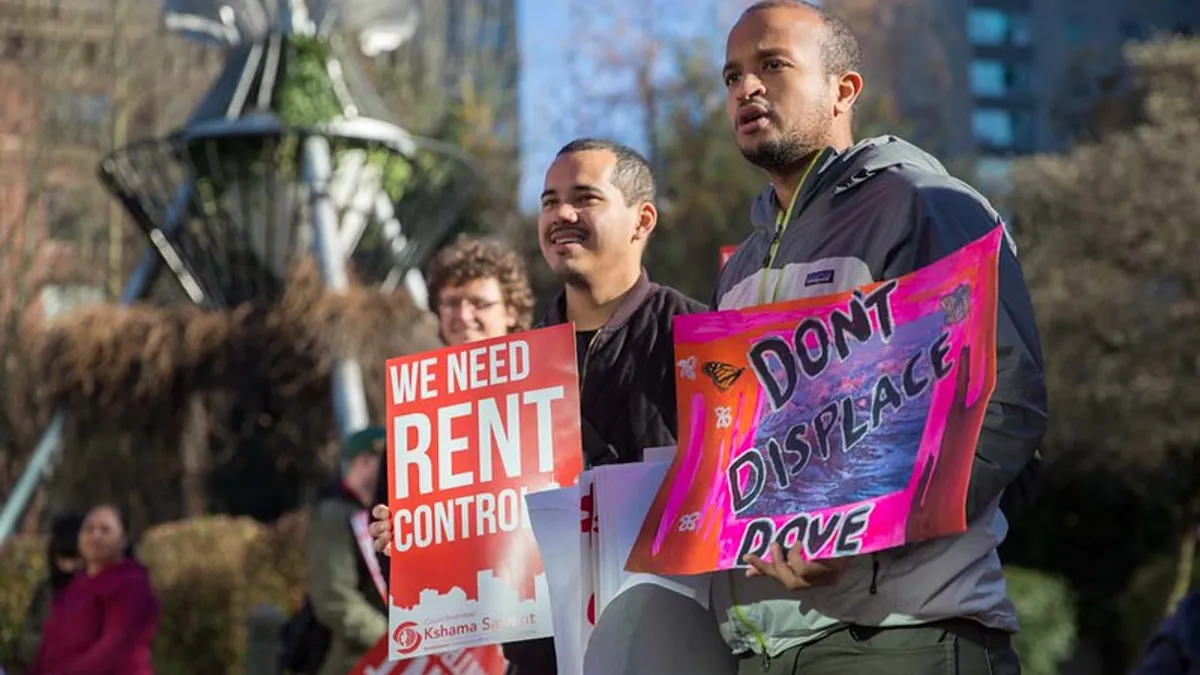Local officials from Seattle to Philadelphia are urging state and federal leaders to offer rent relief and protection for the country’s tens of millions of renters during the novel coronavirus (COVID-19) pandemic.
The call to action comes as 30 million people have filed for unemployment in just six weeks, with some experts estimating that number is an undercount. During a recent Local Progress press conference, leaders called on Congress to cancel rent and mortgage payments, and invest in affordable housing, to help ease financial burdens for those millions of Americans.
"We are in the business of making sure people are sheltered and protected in this time of this public health crisis," said Rep. Ilhan Omar, D-MN, who recently proposed an emergency rent and mortgage cancellation bill. "We can’t afford to have so many people be unsheltered and face this pandemic without the protection of being at home."
The urging of local leaders to cancel rent preceded May Day, on which millions of renters did not pay their landlords full payments or on time. And almost a third of the country's 13.4 million renters could not make their rent in early April, according to a report from the National Multifamily Housing Council.
"The crisis of COVID has laid bare the housing instability that our communities were already facing," Seattle Councilmember Teresa Mosqueda said. Some of the initial measures taken to protect Seattle renters during the pandemic include preventing evictions until June 4; prohibiting utilities from being shut off; prohibiting late fees on back rent and allowing a 12-month grace period to pay rent, according to Mosqueda.
But those efforts are "just not enough," she said. A universal approach to canceling rent and mortgage payments, and building more affordable housing, is still needed, according to Mosqueda.
In Philadelphia, over 550 evictions were scheduled to be heard the week before the city issued its stay-at-home order, Philadelphia Councilmember At-Large Helen Gym said, noting almost 70% of individuals facing default evictions are black mothers who are heads of their households.
"Well before a global health crisis shook our city, a local housing crisis has impacted ten of thousands of families here each and every day," she said.
Eviction moratoriums represent only a temporary solution, according to Local Progress. "Fears are already growing about the backlog of evictions and foreclosures that will inevitably lead to a rise in homelessness once measures are no longer in place to protect tenants," the group said in a statement.
An increase in homelessness could have devastating effects on U.S. cities as the rate of homelessness already jumped 2.7% nationwide last year, according to the U.S. Department of Housing and Urban Development. A recent report found that $11.5 billion is required to protect people experiencing homelessness during the pandemic, and the vulnerable group is four times as likely to require critical care and twice as likely to be hospitalized.
"By suspending rent and mortgage payments across the country, we can reject the politics of divide and conquer and embrace a just solution that leaves no one behind," Gym said. "We can give renters, homeowners, and landlords the chance they need to get back on their feet without risking the homelessness or bankruptcy that could ruin that chance for years to come."
To keep up with all of our coverage on how the new coronavirus is impacting U.S. cities, visit our daily tracker.












